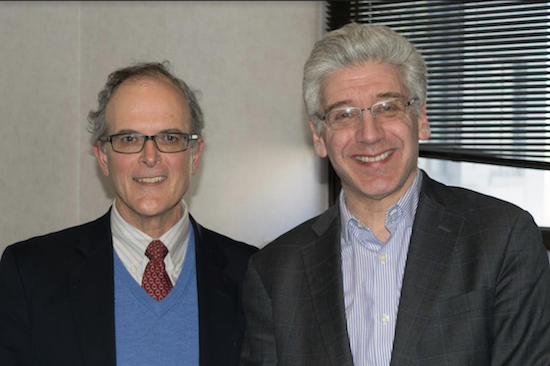Brooklyn Law School legal lunch examines Trump’s potential impact on Dodd-Frank Act

Brooklyn Law School professors Jim Fanto (left) and Ted Janger hosted a "Legal Lunch" where they examined the possible future of financial regulations under the Trump administration. Eagle photo by Rob Abruzzese
As President Donald Trump and congressional Republicans tried and failed to repeal and replace the Affordable Care Act last week, many in the financial sector were left wondering what the future of the Dodd-Frank act might be.
That’s the scenario that Brooklyn Law School’s “Legal Lunches” series examined last Thursday with professors Jim Fanto and Ted Janger — does Trump’s administration mean the end of the Dodd-Frank Wall Street Reform and Consumer Protection Act?
“I don’t think we’ll see Dodd-Frank repeal, that’s just not going to happen,” Janger said.
